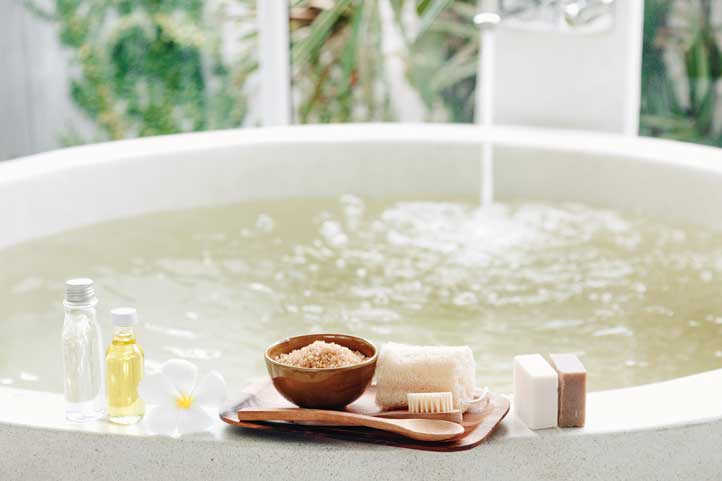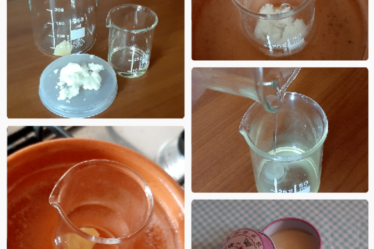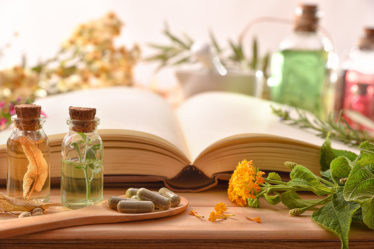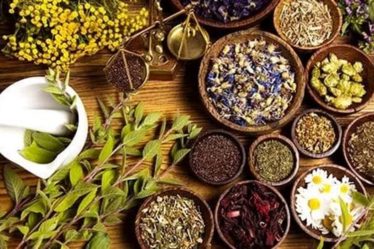
“Salus per aquam” or, as we would say today, spa! Well yes, the modern term spa comes precisely from this Roman motto, “health through water”. It is no mystery, in fact, that ancient Romans appreciated, and not a little, the beneficial virtues of thermal waters. As it is no mystery that this appreciation has been passed on from generation to generation. Let us face it, each of us would like to give themselves a day (or even two) of complete relax in a spa, once in a while. But it is not much possible, for the most diverse reasons. So what? Do we have to give up?
Maybe not…
What if I told you there is a way to recreate a little spa corner in everyone’s house? At the end of the day, a bathtub is all it takes… salus per aquam… precisely.
A bathtub, plain water… and the right herbs!
As you know, the skin is the most extensive “organ” of our body, so it is an excellent vehicle for absorption of active ingredients. Think about it: a therapy that is at the same time a cuddle.
The basic “technique” is simple: we choose the medicinal plants depending on the effect we want to achieve, enclose them in a bag made of natural fabric (linen or cotton are perfect), dive them into hot water-filled tank (50-60 degrees) and leave them infused. After a certain time, when the water has reached a “pleasant” temperature for our body, we can dive in the tub. It is good to stay in the dive for at least 20 minutes, to allow the skin to absorb the loosened assets in the water.
Alternatively, it is possible to prepare previously a decoction or an infusion, which will then be added to the bath water.
As we previously said, we can act on different types of annoyances, depending on the plants we choose.
Hammamelis, cypress, red vine and horse chestnut might be useful in case of venous circulation and microcircle problems.
Lemon balm, chamomile, hops, lavender or lime tree have strong soothing and relaxing properties and can act as decontracting.
If we aim to reduce the imperfections due to cellulite, we will find in fucus, hammamelis, cinnamon, ivy, thyme or rosemary some valid allies.
Oat and helichrysum have a sebum-regulating effect on the epidermis, instead.
These are just a few examples of how we can make the most of what nature (and our home) has to offer us, without too much waste of time, energy and, above all, money.



